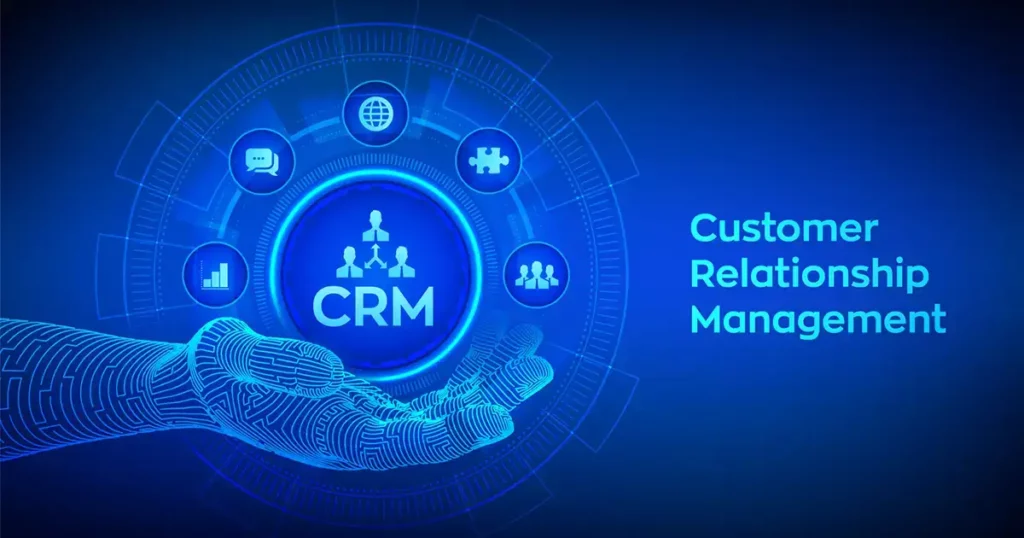81 Best Small Business Tools to Boost Your Success in 2024!
In the fast-changing digital world, small businesses face a tough challenge: keeping up with competitors in the flood of new tech. Feeling overwhelmed picking the right tools to manage your small business? You’re not alone. Many entrepreneurs share your struggle, looking for ways to be more efficient, grow, and succeed.
As a seasoned small business owner, I’ve had my fair share of trial and error when finding the best tools to run Pixel Motives. Let me walk you through a list of the 81 best small business tools I believe will give you an edge in 2024 and beyond. These tools promise to make your life easier, boost your marketing, and supercharge your productivity.
What Are the Small Business Tools?
Tools for small businesses are software applications, online platforms, products, and services that help small business owners manage and automate various aspects of their operations. From project management and accounting to marketing and customer service, these tools help streamline tasks and increase efficiency. The proper set of small business tools can save time, cut costs, improve communication, and enhance business growth.
I’ve categorized the small business tools into groups and sub-categories to simplify navigating this comprehensive list. Let’s check them out!
Online Presence Infrastructure:
In today’s digital economy, establishing your online presence infrastructure is like building your piece of digital real estate. It’s a virtual space where your brand lives and interacts with your audience. The tools below are the foundation of your online presence.

1. Web Hosting
Choosing the right web hosting service is the first step in establishing a professional online presence for your small business. You want a hosting provider that’s reliable, fast and offers outstanding customer support to handle any issues that might arise.
2. Domain Management
Securing a domain name that reflects your brand’s identity is just as crucial as your company name. The right domain boosts your credibility, enhances your brand, and makes it easier for customers to find you.
3. Managed WordPress Hosting
Managed WordPress hosting is fine-tuned explicitly for WordPress sites, ensuring that your digital presence operates at its best with fast loading times and fewer technical glitches. These specialized hosting services offer the optimum server configurations for WordPress and provide enhanced security features, keeping your site secure from hacks and breaches.
Web Design and Development
Your website is the online storefront for your small business, and it speaks volumes about your brand. The right web design and development tools empower you to craft a stunning, user-friendly site that attracts potential customers and keeps them engaged with your content.

4. No-Code Website Builders
No-code website builders are game-changers, offering drag-and-drop simplicity paired with powerful features to launch your online presence without needing to code. These tools are perfect for beginners looking to create professional-looking websites quickly.
5. Content Management Systems (CMS)
Content Management Systems (CMS) provide a user-friendly platform for managing the creation and modification of digital content. These systems enable non-technical users to build, organize, and maintain content-rich websites easily.
6. WordPress Themes
Choosing a visually appealing and functional WordPress theme is the next step in establishing an online presence that truly stands out. Themes give your WordPress site its look and feel, and with thousands of options available, they cater to every style and business niche imaginable.
7. WordPress Plugins
WordPress Plugins extend the functionality of your WordPress site with just a few clicks, offering customized features and capabilities to meet the specific needs of your business. A well-chosen plugin can automate processes, increase site speed, enhance SEO, and even help with lead generation.
8. WordPress Page Builders
WordPress Page Builders simplify the design process, allowing users to create custom layouts and modular designs easily. These tools provide a visual interface with real-time editing capabilities, making it possible for anyone to design a professional and responsive website without writing a single line of code.
9. Code Editors
If your small business needs custom website functionality beyond pre-built themes and plugins, having a basic understanding of primary web languages like HTML, CSS, JavaScript, and PHP is key. Utilizing code editors allows owners to personalize their sites effectively by writing and editing code, providing the flexibility to customize their online presence fully.
10. Local Development Environments
Local Development Environments allow small business owners to test and edit their website’s code on their local computer before publishing it to the web. This practice enables owners to make changes and experiment with their website without affecting its live site.
11. Website Accessibility Tools
Website accessibility tools help your site comply with ADA standards, ensuring people with disabilities can navigate your content without barriers. These tools scan your website for accessibility issues and guidance on fixing them, ensuring that your site is inclusive and available to all visitors.
12. Website Performance Monitoring and Optimization
Website Performance Monitoring and Optimization tools analyze your site’s speed and user experience, identifying areas that require improvement to ensure optimal performance. They provide actionable insights to enhance loading times, optimize images, and reduce bounce rates, which can significantly improve search engine rankings and user satisfaction.
13. Website Heat Mapping
Website heat mapping tools visually represent where users click, move, and scroll on your site. They reveal users’ hotspots and cold zones, enabling web admins to optimize page layout and design for a better user experience.
14. User Behavior Tracking Tools
User Behavior Tracking Tools are analytics programs designed to understand how visitors interact with your website, tracking clicks, mouse movements, and page views. They provide valuable insights into user engagement, helping to shape a more effective, data-driven strategy for website optimization and personalized marketing.
15. Virtual Machines
Virtual Machines (VMs) are software simulations of physical computers that run their own operating systems and applications as if they were real hardware. They are used for tasks like testing new applications in a safe, isolated environment or running multiple operating systems on one physical machine for development and operational efficiency.
Brand Identity
Brand identity is the collection of elements a company creates to portray the right image to its consumers. Brand identity is fundamental for your small business as it encapsulates how it wants to be perceived and differentiates it from competitors. It includes tangible visuals such as logos, color palettes, typography, and the tone of communication and core values. A strong brand identity helps small businesses establish credibility, build customer loyalty, and effectively convey their unique story and value proposition.

16. Graphic Design Tools
Graphic Design Tools provide small businesses an affordable and accessible way to create professional-grade designs for their brand identity. These tools include options for creating logos, business cards, social media graphics, and more without needing extensive design experience.
17. Graphic Design Resources
High-quality stock photo and video libraries, icon sets, and font libraries are great graphic design resources for small businesses looking to maintain a professional brand identity. These resources offer a wide selection of visuals that can be used to enhance brand communication and marketing materials.
18. Brand Monitoring Software
Small businesses can stay ahead of the curve by leveraging brand monitoring software to understand customer sentiment and manage their online reputation effectively. These tools provide actionable insights, allowing businesses to safeguard their brand image and engage with their audience proactively, fostering trust and loyalty in the competitive market.
19. Image Compression Tools
Image Compression Tools reduce the file size of images without noticeably sacrificing quality, making websites load faster and perform better. This improvement can positively impact user experience and SEO, making attracting and retaining website visitors easier.
20. Search Engine Optimization (SEO) Tools
SEO (Search Engine Optimization) tools aid small businesses in optimizing their websites for better visibility on search engines like Google and Bing. These tools offer insights into keyword research and competitor analysis, enhancing onsite and offsite optimization efforts to drive targeted traffic and conversions.
Communication:
Communication serves as the lifeline that connects the various parts of an organization, facilitating the flow of information and collaboration necessary for operation. It enables leaders to convey their vision, align their teams toward common goals, and build relationships with customers and stakeholders. Effective communication enhances decision-making, increases efficiency, and fosters a positive workplace culture that can significantly contribute to the business’s overall success.

21. Virtual Meetings
Virtual meetings employ video conferencing technology to enable remote face-to-face collaboration, breaking the barriers of geography and time zones. They facilitate real-time communication for small businesses, allowing team members, stakeholders, and clients to engage from anywhere in the world.
22. Cloud Storage and File Sharing
Cloud storage is a service that allows users to save data on remote servers accessed through the internet, providing a secure and scalable solution for data management. This technology enables seamless file sharing among users, easily synchronized across multiple devices, facilitating collaboration for businesses and individuals.
23. Chat and Messaging Apps
Chat and Messaging Apps have revolutionized how small businesses communicate, offering a quick and convenient way to interact with team members and customers. They enhance real-time collaboration, streamline workflows, and ultimately drive efficiency within the digital workplace.
Collaboration:
Collaboration tools support small businesses by creating shared spaces for teams to work together on projects, regardless of individual locations. These platforms offer features for document editing, project management, and real-time feedback, fostering an environment of transparency and collective problem-solving. Small businesses can streamline processes, accelerate innovation, and leverage diverse perspectives with improved collaboration.

24. Documentation
Documentation tools enable small businesses to centralize their information, ensuring consistency and accessibility in creating a single source of truth. This facilitates standardizing processes and provides clear guidelines on how tasks should be carried out, promoting organizational efficiency and uniformity.
25. Project Management
Project management tools are comprehensive platforms designed to assist in planning, organizing, and managing projects efficiently. They provide features like task assignments, progress tracking, and collaboration capabilities to ensure projects are completed on time and within budget.
26. Screen Capture Apps
Screen capture apps allow users to take screenshots or record screens to visually demonstrate processes, errors, or complex ideas where textual explanations fall short. They are beneficial in tutorials, technical support, and collaborative projects where visual cues are essential for clarity and effective communication.
Productivity Tools:
Productivity tools help optimize everyday tasks, organize workflows, and manage time effectively. From calendar apps that schedule meetings to task managers that prioritize daily activities, these tools facilitate a structured approach to business management. They empower teams to work smarter, not harder, freeing time to focus on strategic tasks that drive business growth and innovation.

27. Writing Tools
Writing tools offer resources like grammar checking and style guide compliance, helping small business professionals craft clear, concise, and compelling written materials. These tools can improve overall communication, enhance branding, and aid in creating professional documents that reflect the quality and credibility of a business.
28. Calendar Apps
Calendar apps are a powerful organizational asset, allowing meticulous scheduling and time management. They enable the synchronization of appointments across devices, ensuring team members are always informed and aligned with upcoming commitments.
29. Note-Taking Apps
Note-taking apps provide a versatile platform for efficiently capturing ideas, meeting minutes, and to-do lists. They enhance productivity by allowing users to access and organize their notes across multiple devices, facilitating better information management and retrieval.
30. Task Managers
Task managers are powerful organizational tools that help prioritize and keep track of daily operations, deadlines, and goals. They enable team collaboration by assigning responsibilities and updating the status of various tasks in real time.
31. Time-Tracking
Time-tracking tools enable individuals and teams to record the time spent on specific tasks or projects. They provide insight into work patterns, helping businesses optimize productivity and efficiently allocate resources.
32. Browser Extensions
Browser extensions are small software modules that customize and enhance the functionality of web browsers, providing users with features and tools directly within their internet experience. They can vary from productivity boosters to marketing and sales aids, improving business processes and workflows.
Online Retail
Online retail, also known as e-commerce, has transformed the shopping experience, allowing consumers to browse and purchase products from the comfort of their homes. This platform enables small businesses to expand their reach beyond local markets to a global audience. Utilizing user-friendly interfaces, secure payment systems, and insightful analytics, e-commerce platforms pave the way for businesses to connect with customers, personalize shopping experiences, and grow their brand in the digital marketplace.

33. E-commerce Platforms
E-commerce platforms offer small businesses the tools and infrastructure to easily create an online store, manage inventory, and process transactions. They often come with integrated analytics to help business owners understand customer behavior and adjust their strategies for increased engagement and sales.
34. Online Payment Processors
Online payment processors provide a secure, streamlined method for handling transactions, enabling businesses to accept various payment methods from customers worldwide. They act as intermediaries for an online store, facilitating funds transfer and ensuring that payments are processed quickly and securely.
Financial Management:
Financial management encompasses the strategic planning, organizing, directing, and controlling financial undertakings in an organization or enterprise. It involves the application of management principles to the financial assets of an organization to maximize value and ensure financial stability. Small businesses can utilize various tools and software to streamline their financial management processes, allowing them to make informed decisions and achieve their financial goals.

35. Budgeting
Budgeting tools are designed to assist small businesses in tracking and managing their finances, ensuring they maintain control over their income and expenditures. These tools help forecast future financial needs and create plans that align with business objectives and constraints.
36. Invoicing
Invoicing tools streamline the billing process. They help generate professional invoices and ensure accuracy. These tools also enable efficient tracking of payments and outstanding balances to maintain healthy cash flow.
37. Tax Preparation
Streamline your tax filing with user-friendly tax preparation tools. These tools help organize and track expenses, ensuring accurate tax reporting to maximize deductions and minimize errors.
Cybersecurity:
Cybersecurity tools are designed to detect vulnerabilities, prevent unauthorized access, and safeguard business assets from potential breaches. They ensure small businesses are made aware of ever-evolving cyber risks. With the increasing reliance on technology, cybersecurity tools protect sensitive c data and help maintain customers’ trust.

38. Password Manager Apps
Password manager apps serve as a secure vault for all your passwords, eliminating the need to remember every single one. By storing and managing your login credentials, these apps make it easy to maintain strong, unique passwords for each account without the hassle of memorization.
39. Antivirus Software
Antivirus software acts as a line of defense against various types of malware, including viruses, worms, and ransomware. It continuously scans computers and networks to detect and remove malicious threats, ensuring business operations remain secure.
40. Firewalls
Firewalls are a protective barrier between a business’s internal network and external threats, regulating traffic based on predetermined security rules. They are essential for preventing unauthorized access and can be implemented as hardware and software solutions.
41. Virtual Private Network (VPN)
Virtual Private Networks (VPNs) provide an encrypted connection over the internet from a device to a network, ensuring secure and private data transmission. They are commonly used by small businesses to allow remote access to internal systems while maintaining cybersecurity protocols.
Data Management:
Data management refers to organizing, storing, and maintaining the information created and collected by a business. This includes regular copying and archiving of data to ensure its availability in the event of data loss, corruption, or disasters. Small businesses can benefit from various tools and software to streamline data management and backup processes.

42. Data Backup and Recovery
Data backup and recovery tools provide small businesses with the peace of mind that their valuable data is securely backed up and can be restored quickly in the case of a data loss incident. These solutions often feature automated backup schedules, cloud storage options, and robust recovery processes to ensure business operations can continue without interruption.
43. Digital Asset Management
Digital Asset Management (DAM) systems offer businesses a centralized repository for organizing, storing, and retrieving digital content, such as images, documents, and multimedia files. These systems facilitate efficient asset search and management, ensuring easy access to the right assets and collaboration across different teams when needed.
Client Management:
Client management systems aid businesses in organizing and analyzing customer data and interactions throughout the customer lifecycle. Their goal is to improve business relationships with clients, assist companies in staying connected to customers, streamline processes, and improve profitability.

44. Customer Relationship Management (CRM)
Customer Relationship Management (CRM) software enables businesses to track and manage their interactions with current and prospective clients. By leveraging these systems, companies can offer personalized experiences and foster customer satisfaction based on informed data analysis.
45. Appointment Scheduling Apps
Appointment scheduling apps simplify the process of booking and managing appointments, allowing clients to reserve times that work best for them without back-and-forth communication. These apps often include features like automated reminders, calendar integration, and online payment options to improve the overall efficiency and customer experience.
46. Customer Support and Help Desk Solutions
Leverage customer support and help desk solutions to offer prompt and efficient service, ensuring customer issues are addressed and resolved quickly, fostering satisfaction and loyalty. These tools centralize customer queries, automate responses for everyday issues, and provide detailed analytics to improve service quality.
47. Online Reputation Management (ORM) Tools
Online Reputation Management (ORM) Tools empower businesses to monitor and influence their online digital reputation and public perception. These platforms facilitate tracking online reviews, social media mentions, and other forms of customer feedback, enabling businesses to respond and manage their brand image effectively and proactively.
48. User Feedback and Survey Tools
Gather valuable insights directly from your customers with user feedback and survey tools, which allow for creating and distributing customized surveys and feedback forms. These tools help businesses understand customer satisfaction, improve product offerings, and make informed decisions based on actionable data.
Artificial Intelligence (AI):
Artificial Intelligence (AI) is revolutionizing how businesses operate by automating complex tasks, analyzing vast amounts of data, and providing insights beyond human capabilities. AI applications range from chatbots enhancing customer service to predictive analytics in inventory management, crafting a more efficient, personalized, and forward-thinking approach to business operations. By integrating AI into their day-to-day processes, businesses can enhance productivity, refine marketing strategies, and foster innovation to remain competitive in today’s fast-paced marketplace.

49. AI Content Creation
AI content creation tools utilize machine learning algorithms to produce top-notch content quickly. By streamlining content creation, these tools cut down the time and resources needed, enabling businesses to uphold a solid digital presence and effectively connect with their audience.
50. AI Image Generators
AI image generators harnessed through machine learning can create customizable visual content with minimal input, revolutionizing graphic design processes. These generators benefit businesses looking to rapidly develop unique and compelling images for marketing, advertising, or product design purposes.
51. AI Chatbots
AI chatbots are intelligent assistants designed to simulate human conversation, enabling businesses to provide instant support and engage with customers 24/7. Their advanced algorithms allow them to learn from interactions, continually improving their ability to deliver accurate responses and enhance user experience.
52. AI-Driven Marketing Automation
AI-driven marketing automation platforms transform how small businesses approach their marketing efforts, using advanced algorithms to target and engage customers precisely. These systems analyze customer behavior to deploy personalized marketing campaigns, significantly increasing conversion rates and return on investment.
53. AI-Powered Hiring Tools
AI-Powered Hiring Tools streamline the recruitment process, using advanced algorithms to sift through many applications and efficiently identify top candidates. They support unbiased hiring by focusing on the skills and experiences that match job requirements, contributing to a more diverse and qualified workforce.
54. AI in Customer Experience (CX)
AI redefines customer experience (CX) by enabling hyper-personalized engagements that adapt to individual customer preferences and behaviors. These intelligent systems can analyze vast data arrays to predict customer needs, providing more precise and timely responses that drive customer satisfaction and loyalty.
55. AI-Powered Personalization
AI-powered personalization allows businesses to deliver customized consumer experiences by dynamically adapting content, recommendations, and services based on individual user data. This approach enhances the customer journey, increasing engagement, satisfaction, and a higher likelihood of conversions.
Online Business Operations:
Online business operations encompass a broad spectrum of activities a small business conducts over the Internet. From contract management to cloud-based services, companies can leverage online tools and platforms to streamline their day-to-day operations, reduce costs, and improve efficiency.

56. Contract Management Software
Contract management software helps businesses manage their legal agreements with clients, vendors, and partners. These platforms facilitate creating, storing, and sharing contracts securely online, ensuring compliance with contract terms and conditions while reducing the risk of human error.
57. Proposal Software
Proposal software simplifies the creation and submission of proposals to prospective clients or partners. These platforms offer customizable templates, collaboration tools, and advanced analytics to enhance success rates in competitive markets.
58. Online Document Signing and Management
Online document signing and management platforms provide a secure and efficient way to execute legally binding agreements without the need for physical documents or in-person meetings. These solutions streamline the signing process, allowing for rapid contract turnaround while maintaining high security and compliance.
59. Cloud-based Phone Systems
Cloud-based phone systems deliver flexible and scalable communication solutions, enabling small businesses to maintain professional client interactions from any location. They offer advanced features like virtual voicemail, call routing, and integration with CRM platforms, all while reducing the costs associated with traditional telephony.
60. Voice-over-IP (VoIP) Services
Voice-over-IP (VoIP) Services transform traditional phone communication by transmitting calls over the Internet, offering a cost-effective and feature-rich alternative to landline systems. These services empower businesses with tools such as video conferencing, call forwarding, and multi-device integration, enhancing remote collaboration and connectivity.
61. Automated Email Responders and Sequence Marketing Tools
Automated Email Responders and Sequence Marketing Tools allow businesses to maintain continuous contact with customers, nurturing leads with minimal manual effort. They allow for creating targeted email sequences that react to customer actions, delivering timely and relevant content that drives engagement and sales.
62. Event Planning and Management
Event Planning and Management technologies provide comprehensive solutions for orchestrating virtual and in-person events, enhancing the attendee experience, and streamlining organizational tasks. They facilitate registration, scheduling, attendee tracking, and analytics, ensuring event success from inception to completion.
Business Development
Business development is a dynamic process that involves the identification of new business opportunities, building valuable relationships, and strategically implementing business growth initiatives. It spans a range of activities, including networking, negotiating partnerships, market expansion, and new product or service development. Business development aims to increase revenue, market share, and profitability by aligning business goals with consumer needs.

63. Business Plan Software
Business Plan Software equips your small business with the tools to craft detailed, investor-ready business plans. By guiding users through market analyses, financial projections, and strategy outlines, these platforms significantly enhance the planning process for new ventures or expansion projects.
64. Business Coaching and Mentoring Services
Business Coaching and Mentoring Services offer personalized guidance to help entrepreneurs and professionals navigate the complexities of business growth and leadership challenges. By pairing with experienced mentors, these services foster strategic thinking, goal setting, and the development of practical business skills.
65. E-learning and Training Platforms
E-learning and Training Platforms leverage cutting-edge technology to deliver educational content and training programs to individuals and organizations across the globe. They offer flexible learning environments customized to meet learners’ unique needs and goals, enabling continuous skill development and professional growth.
66. Knowledge Management Systems
Knowledge Management Systems (KMS) are designed to centralize an organization’s collective expertise, fostering an environment of shared intelligence and informed decision-making. These systems enhance the ability to capture, distribute, and effectively use the knowledge generated within a company.
Digital Marketing:
Digital marketing encompasses strategies and tools for small businesses to promote their products, services, and brands across various online platforms. By leveraging search engine optimization (SEO), pay-per-click advertising (PPC), social media marketing, content marketing, and email campaigns, companies can engage with a broader audience more efficiently and measure the impact of their marketing efforts with precision and depth. This dynamic field constantly evolves, driven by changing consumer behaviors and technological advancements, which creates ongoing opportunities for innovation and connection with potential customers.

67. SEO and Analytics
SEO and analytics tools for small businesses help maximize online visibility and understand user behavior. These tools allow entrepreneurs to optimize their content for search engines, track website performance, and gain insights into customer engagement.
68. Email Marketing Platforms
Email marketing platforms empower your small business to connect directly with customers, delivering personalized messages that drive sales and build loyalty. They provide intuitive templates and automation features that save time while ensuring consistent communication with your audience.
69. Landing Page Builders
Landing Page Builders equip businesses with the tools to create optimized web pages that convert visitors into leads or customers. They offer drag-and-drop functionality and pre-designed templates, making it easy to construct effective landing pages without the need for advanced coding skills.
70. Sales Funnel Builders
Sales Funnel Builders offer a strategic approach to guiding potential customers through the buying process, from the initial interaction to the final sale. These tools help businesses automate and optimize each funnel step, ensuring a seamless customer journey and increasing conversion rates.
71. SMS and Text Marketing
SMS and Text Marketing tools provide businesses with an immediate and personal way to reach customers, boasting high open and response rates. They facilitate time-sensitive offers and alerts, making them particularly effective for promoting flash sales and building customer engagement.
72. Online Advertising Platforms
Online Advertising Platforms allow businesses to target specific demographics and track ad performance with real-time analytics. They offer a variety of ad formats, including banners, pop-ups, and video ads, for maximum reach and impact.
73. Personalized Marketing Platforms
Personalized Marketing Platforms utilize advanced algorithms and data analytics to tailor marketing messages and offers to individual consumer preferences and behaviors. These platforms increase engagement and conversion by delivering highly relevant content that resonates with the target audience.
74. Multichannel Marketing Platforms
Multichannel Marketing Platforms enable businesses to deliver a cohesive brand experience across various communication channels, from social media to email to in-store interactions. They help marketers synchronize campaigns and content, ensuring consistent messaging that enhances customer engagement and reinforces brand recognition.
75. Affiliate Marketing Software
Building affiliate partnerships can amplify a small business’s marketing reach and drive incremental sales. Affiliate marketing software allows businesses to manage affiliate programs efficiently, enabling them to tap into new customer segments and boost revenue through collaborative marketing efforts.
76. Web Scraping Tools for Lead Generation
Accessing valuable data from the web is essential for generating quality leads and understanding market trends. Web scraping tools equip small businesses with the means to extract and analyze relevant information, empowering them to make informed decisions and fueling their lead-generation efforts.
Social Media:
Social media platforms provide small businesses with a dynamic and cost-effective way to reach and engage diverse audiences. Utilizing the tools available, companies can showcase their brand, build customer relationships, and boost market influence through regular, interactive posts and conversations. Small businesses can create highly tailored campaigns that convert followers into loyal customers by harnessing targeting features to reach specific demographics.

77. Social Media Management
Social Media Management tools enable your small business to orchestrate its online presence across various platforms from a single dashboard, streamlining the process of content scheduling, posting, and engagement tracking. These tools help maintain a consistent brand voice and strategy while analyzing performance metrics for future marketing decisions.
78. Social Media Marketing Tools
Social media marketing tools provide invaluable analytics and insights, allowing small businesses to hone their strategies and effectively target their audience. These tools simplify creating engaging content, running advertisements, and interacting with the community, enhancing visibility and fostering growth in a competitive digital landscape.
79. Social Proof and Testimonial Tools
Social proof and testimonial tools enable businesses to showcase customer satisfaction and build trust with prospective buyers by displaying honest user feedback and success stories. They can significantly influence purchase decisions by providing authentic evidence of product quality and customer experiences.
80. Automated Social Media Posting and Scheduling Tools
Automated social media posting and scheduling tools are beneficial for businesses looking to maintain a consistent online presence without spending hours manually updating each platform. These tools can help small businesses plan their content calendar strategically, ensuring they reach their audience at the peak time for engagement.
81. Influencer Marketing Platforms
Influencer marketing platforms connect small businesses with key influencers to co-create campaigns that resonate authentically with specific audience segments. These platforms streamline collaboration, enabling small businesses to leverage influencers’ credibility and expansive reach for more impactful brand promotion.
What Are Tools for Small Businesses?
Tools for small businesses encompass a wide range of software, platforms, and applications designed to facilitate various aspects of business operations, marketing, and customer engagement in a digital age. From streamlining daily tasks to optimizing marketing strategies, these tools aim to enhance efficiency, increase productivity, and drive growth, enabling small businesses to compete more effectively in their markets.
While the digital tools listed provide a foundation for growth and efficiency, the human element remains irreplaceable. The strategic use of these small business tools, combined with entrepreneurial insight, creativity, and customer-centric approaches, underpins the success of small businesses in today’s highly competitive landscape. Therefore, the selection and use of digital tools should always align with the broader business strategy and goals, ensuring that technology is an enabler of success rather than an end.
How Can Tools Benefit Small Business Owners?
Small business tools offer many benefits, primarily enhancing operational efficiency and strategic marketing efforts. By automating routine tasks, businesses can free up valuable time and resources that can be redirected towards more strategic initiatives, such as business development and customer engagement. These tools simplify complex processes, reduce the likelihood of errors, and ensure that businesses operate smoothly daily.
Ultimately, the strategic integration of these small business tools into everyday operations can lead to increased productivity, higher customer satisfaction, and accelerated growth. By leveraging these technologies, small businesses can refine their operational and marketing strategies and enhance their ability to innovate and adapt to the rapidly changing business landscape.
Wrapping Up
Exploring the plethora of small business tools available can sometimes feel overwhelming. However, by taking the time to research which tools align with your business needs, you can unlock opportunities for growth and success. These tools streamline everyday tasks, enhance marketing efforts, and enable small businesses to thrive in a competitive market.
While it may not be possible to personally test every tool listed due to the vast array of options, I make sure that my recommendations stem from thorough research, expert insights, and real-world success stories. Each suggested tool goes through a rigorous evaluation process, considering aspects such as user feedback, cost-effectiveness, usability, and the specific requirements of small businesses.
My goal is to provide small businesses with a reliable resource for discovering and utilizing the best tools available to drive their success. I hope my recommendations help your small business thrive and reach its full potential. Feel free to try new things and adapt as needed! Thank you for reading.
Frequently Asked Questions (FAQs)
You may have questions or concerns when implementing new tools into your small business. Here are some frequently asked questions that may help address any uncertainties.
What are the essential tools every small business should have?
This can vary depending on the specific needs and goals of each business. Some essential small business tools you may find helpful include accounting software, project management tools, social media management platforms, customer relationship management (CRM) systems, and email marketing tools. Small businesses must assess their unique needs and goals when selecting which tools to invest in.
How can small businesses choose the right software for their needs?
To choose the right software for their needs, small businesses should consider factors such as budget, features, ease of use, customer support, compatibility with existing systems, and scalability. Reading reviews, seeking recommendations from others in similar industries, and using free trials to test the software are also recommended.
Are there any free tools that small businesses can use effectively?
Most tools recommended in this guide offer free versions or trials that small businesses can use effectively. However, remember that some features may be limited in the free versions, and upgrading to a paid version may be necessary for full functionality.
What’s the importance of scalability in business tools?
Scalability ensures that the tools a business uses can grow with the business, accommodating increased demand without needing to switch to a new system. This makes it easier to manage expansion and avoid interruption to operations.
Can small business tools improve customer satisfaction?
Absolutely. Tools for small businesses can significantly enhance customer satisfaction and loyalty by streamlining operations, automating customer service, and providing personalized experiences through data analysis.

